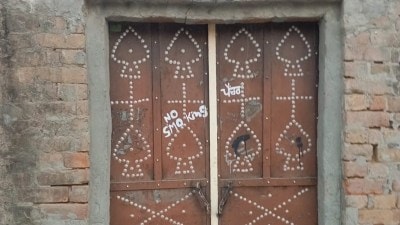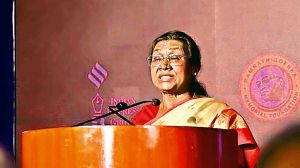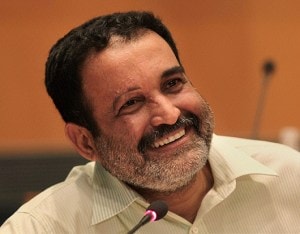Get Me Out of Punjab
BALJINDER Sandhu’s is a classic case. This 31-year-old from Anokharwal village has just one mission: to go abroad. ‘‘The US i...

BALJINDER Sandhu’s is a classic case. This 31-year-old from Anokharwal village has just one mission: to go abroad. ‘‘The US is too hard to prise open, but Canada is porous,’’ says the strapping six-footer, who’s always on the lookout for ways to worm his way into El Dorado.
This will be his third attempt: he made the first one in ’90 when he shelled out Rs 3 lakh for Canada, only to be stopped short at Germany. His German adventure lasted six months during which he hid in jungles, and was jailed twice before being deported with just a radio to show for his travails.
He made the second escape four years later when he entered Britain on a fake passport that set him back by Rs 5 lakh. But there too, he was caught and bundled back the minute he stepped out of the farm where he toiled for a year.
You’d think he would be wary of taking another chance, but he is more than eager. ‘‘I’ll do anything, wash utensils, clean toilets… anything to go abroad,’’ he makes no bones about his fixation. Reason: ‘‘There is no money in farming.’’ Coming from a small farmer this would be understandable, but Baljinder and his two brothers own 60 acres. ‘‘So what,’’ asks Baljinder. ‘‘One crop failure puts us back by years. Besides the money we make doesn’t tally with the labour we put in. Adha te ahrtiye hi khaa jaande ne (The middlemen take half our share),’’ he fumes.
| He survived a crash |
|
After languishing in the airport for eight days, his contact put him up in a hostel where he spent three months in hiding, surviving on one meagre meal a day. Finally, he was put on a plane to France, only to be deported to Abidjan from the airport. His agent then flew him to Holland, where he was nabbed by immigration authorities and jailed for a week before being returned to Abidjan. ‘‘I had no money, no passport,’’ says Charanjeet. After five days on the beach without a morsel to eat, he was finally able to get a Good Samaritan to call back home for money to buy a ticket. ‘‘It was with a sigh of relief that I boarded the Kenya Airways flight on January 31, 2000,’’ recalls Charanjeet. He was still praying when he heard a loud bang. ‘‘The entire left side of the plane had caught fire,’’ he says. Moments later, there was another blast and he lost consciousness. ‘‘When I came to, I found myself floating on the ocean with dead bodies,’’ says Charanjeet, who held onto a tyre for five hours, attracting the attention of a rescue plane by flashing a torch. Of the 280 passengers on board, only two survived and Charanjeet was one of them. Today, he tills the 10 acres that his father owns. But the El Dorado dream hasn’t died. ‘‘I don’t mind taking a chance, but legally,’’ he grins. |
His younger brother Satnam nods though he’s resigned himself to farming after a horrifying internment in a Malaysian jail four years ago where he was bled every few days.
Such horror stories are legion but most youngsters are unfazed, hooked as they are by the lure of a better life. ‘‘Youths these days don’t want drudgery, they’re ready to work but only when assured of instant gratification, a possibility abroad,’’ says Dr Darshan Singh Bedi, principal of the Shivalik Public School at Nawanshehar, whose students have immigrated all over.
Prem Singh Advocate, vice-chairman of the NRI Sabha, Punjab, says it’s the plethora of opportunities abroad and lack thereof at home which makes Punjabis flock overseas. ‘‘Being hardworking, they cash in on every chance they get and often come up tops.’’
That’s true of Joginder Singh, a Class V dropout from Kaleran, who sweated it out in steel foundries at Leicester for 12 years before pioneering a leisure-wear unit. Now counted amongst the richest Asians of England, he can relate to the go-abroad craze. ‘‘It is tied up with the end of Green Revolution,’’ he declares, adding: ‘‘Shrinking landholdings, non-existent jobs and a corrupt administration, all force the youth to look outwards.’’
The vision of riches drives even the middle-aged to take the plunge. Ramesh Singhal, a grocer at Nawanshehar, is among them. This 40-something made a leap of faith two years ago when he paid Rs 4 lakh to an agent for passage abroad. The trip never materialised nor did the money. Today, Singhal is fighting a legal battle to get the money back.
There are others who blame this Reckless Exodus on the original immigrants who began staking out alien lands at the turn of the last century. ‘‘It’s a kind of wanderlust that is very infectious, especially when it is accompanied by tangible gains,’’ says Kirpal Khunkhun, an Australian citizen, whose great grandfather set the trend for the family by immigrating to Fiji in the 19th century. ‘‘My father changed his name to Pahalwan Mahajan to enter the UK in ’45 while my uncle stole into Pakistan to get a passport for UK in ’51,’’ Khunkhun smiles.
NRIs coming home to replay the success stories also add to the charm of lands foreign. Prakash Singh, the Nawanshehar MLA who runs a business empire, attributes his entrepreneurial skills to his 12-year sojourn in London.
For many, a Green Card works as the great leveller. Take Tara Chand Ahir, a Scheduled Caste from Sanwaan village, whose stint in England translated into a plush house, which is today a landmark that even the upper-castes look upon with envy. It’s such countless rags-to-riches tales and ‘tangible gains’ often in the form of palatial houses in the middle of dusty villages, that tempt both the desi haves and have-nots.
At Kaleran village, a modern-day palace in marble sits cheek-by-jowl with a dirty pond. It’s the house of Gurdas Singh and his three sons, who own only five acres. The money comes from the son in England. ‘‘It’s too big, we spend the entire day mopping the floors,’’ sigh his two sisters-in-law, their workday clothes a stark contrast to the princely setting.
| Failed Odyssey |
| April 2002: 17 youths from Doaba drown near Greece April 2002: 116 Punjabi youths detained in Kiev December 25, 1996: 170 Punjabi boys drown in the Malta-Sicily channel June 13, 2001: 17 drown in the Morava river near the Czech and Slovak republics April 24, 2001: Illegal Indians immigrants caught at a construction site in Malaysia |
But this lodge pales in comparison to the luxurious retreat of Surinder Singh Boyal, a Birmingham-based industrialist, at Khotran village. Still under construction, the lodge has six bedrooms, 12 baths and an indoor pool. But what makes you do a double-take is the servant quarter, complete with ACs and a Lancer.
No wonder the NRI tag is becoming de rigueur. Dr Darshan Singh Bedi too has got a Canadian Green Card even though he has no plans to immigrate. There are others who crave for a ‘base abroad’ through means fair and foul. Fragmented families are the collateral damage caused by this lust for lands foreign, but no one seems to care. So, Bhupinder Kaur of Anokharwal, whose husband has been living illegally in England for the past 11 years, merely shrugs off the separation with: ‘‘He may not be here, but he’s been sending money regularly.’’ That is the bottom line. It’s the M-factor that makes them risk it all.






- 01
- 02
- 03
- 04
- 05

























